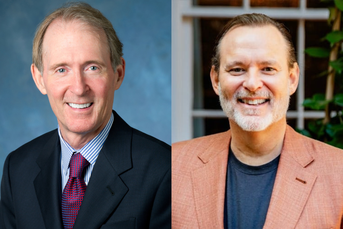How to keep elderly clients safe from scams this holiday season

There are many ways financial advisers can protect elderly clients from financial abuse. The first trick is to spot it.
The holidays are a time of merriment and mirth, of gift-giving and family gatherings. It’s also a time when financial advisers need to keep a close eye on elderly clients’ accounts.
“We’ve found the holiday season is a crucial time to proactively contact each of our clients that might be more vulnerable to financial threats or scams,” said Nina Lloyd, president and CEO of Opus Financial Advisors, a part of the Advisor Group network of firms.
There are many ways financial advisers can protect elderly clients from financial abuse this holiday season. The first trick is to spot it. Vague or inconsistent answers may be one way to identify elderly abuse.
However, the most important tool financial advisers can utilize in this effort, according to Lloyd and others, is their deep understanding of their clients’ financial circumstances and family dynamics. Financial crimes often originate with trusted family members and friends, or someone posing as a friend or relative, so quickly recognizing irregular spending is a must.
“For our financial planning clients, we maintain a detailed record of ongoing monthly expenses, which allows us to quickly identify red flags. We also discuss charitable giving and family gifting plans,” Lloyd said. “If a client mentions a large, unplanned gift to a loved one, it’s important to ask clarifying questions like ‘I’d love to learn more about this gift, how did you decide on the amount you’d like to give?’ or ‘That’s a generous gift, are you trying to meet a specific need?’”
Alexis Zuccaro, wealth adviser with SageView Advisory Group, recommends regularly monitoring bank accounts for unusual activity and apprising clients of scams via phone calls and emails. She also reminds older clients to be wary of a false sense of urgency or claims of law enforcement or government agency affiliation and to avoid wiring funds or purchasing gift cards. Finally, she counsels clients to never provide personal information over the phone or by email or text message.
“Financial advisers can also work with a designated family member or trusted contact to help verify suspicious activity and in extreme cases, identify potentially harmful situations,” Zuccaro said.
Making sure clients have all their essential estate planning documents in place for all meetings and discussions is another rule to remember, said Jay Beynon, financial adviser with Axió Capital Advisors at Stifel Independent Advisors.
“The role of a financial adviser is to be a steward of our clients’ assets and to be their advocate when it comes to elder abuse,” Beynon said.
Technology can help the cause as well. Carefull, a digital platform built to protect the daily finances of older adults, last month announced that it had successfully analyzed and protected $2 billion of transactions from fraud and financial threats in 2022. Carefull refers to the daily monitoring and coordination of an aging loved one’s money as “financial caregiving.”
“Individuals and their financial advisors need senior-specific solutions across multiple generations and providing dedicated solutions that make financial caregiving smarter, simpler and more holistic is our top priority,” Todd Rovak, co-founder of Carefull, said in a statement.
“In 2023, we will continue to defend our clients from financial threats and mistakes with AI purpose-built for older adult assets,” Carefull’s other co-founder Max Goldman said. “Our goal is to make sure advisers are finally equipped to support multigenerational wealth management.”
Robin Traxler, senior vice president of policy and deputy general counsel at the Financial Services Institute, said that while financial abuse is a year-round concern, “risks heighten during the holidays with increased spending and interactions with family.” Traxler added that advisers should not hesitate to utilize government agencies to help as well.
“Advisers should take time during end-of-year client meetings to review activity and the various relationships in a client’s life, as well as share resources from trusted sources, such as Finra and NASAA, that can help empower clients to identify potential scams,” Traxler said.
Christina Nash, founding partner and financial adviser at Knox Grove Financial, a member of Royal Alliance, which is part of Advisor Group,, reminds her clients to reach out to her team if something feels wrong — no matter the season.
“Many times they will realize that it is a threat or scam simply by explaining the circumstances to our team,” Nash said.
‘IN the Office’ with Nationwide retirement strategist Kristi Rodriguez
Learn more about reprints and licensing for this article.








